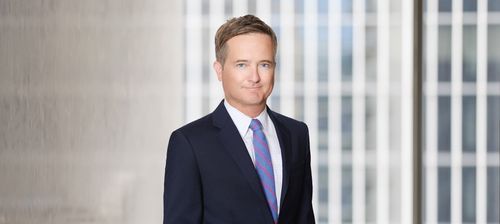Client Alert
Supreme Court Limits SEC Disgorgements
Client Alert
Supreme Court Limits SEC Disgorgements
June 23, 2020
On Monday, the Supreme Court issued its opinion in Liu v. Securities and Exchange Commission, limiting the SEC’s ability to seek “disgorgement” of profits for violating federal securities fraud laws. In an 8-1 decision, the Court held that the SEC can seek disgorgement of profits for violations of the securities laws so long as the disgorgement is for the benefit of the victims and does not exceed the wrongdoer’s net profits.
This case provided the Court with a chance to clarify whether disgorgement qualifies as “equitable relief” for violations of the securities laws, and the limits of such an award. Disgorgement allows for the return of ill-gotten gains to victims and is one of the SEC’s most powerful and widely-used enforcement tools to deter the violation of securities laws. The Liu case involved an investment fund operated by a husband and wife that solicited investments for the construction of a cancer treatment center in California. The SEC alleged that the couple did not spend the funds as promised, and the district court agreed. The court enjoined the defendants’ activities and, among other things, ordered that the defendants be held jointly and severally liable for the disgorgement of the full amount of funds sought by the SEC.
Writing for the majority, Justice Sotomayor began the opinion by explaining that, under Supreme Court precedent, disgorgement can qualify as “equitable relief” for violations of the securities laws. At the same time, however, the Court explained that “longstanding equitable principles” prohibit “the SEC from seeking an equitable remedy in excess of a defendant’s net profits from wrongdoing.” With this in mind, the Court described several “principles that may guide” courts in assessing these issues moving forward:
- First, the Court made clear that the SEC “must do more than simply benefit the public at large by virtue of depriving a wrongdoer of ill-gotten gains.” The Court rejected the Government’s argument that the SEC’s “practice of depositing a defendant’s gains with the Treasury” can satisfy this requirement by merely “depriving a wrongdoer of his net profits alone.” Instead, the law requires the Government to provide a remedy “appropriate or necessary for the benefit of investors,” which could include returning the funds to the investors, or perhaps using the funds to compensate whistleblowers and fund the activities of the Inspector General. The Court said it remains an “open question” whether “the SEC’s practice of depositing disgorgement funds with the Treasury may be justified where it is infeasible to distribute the collected funds to investors."
- Second, the Court cautioned that the practice of disgorging benefits that accrue through affiliates—with joint-and-several liability, for example—may “sometimes [be] at odds with the common-law rule requiring individual liability for wrongful profits.” The Court noted that the “practice could transform any equitable profits-focused remedy into a penalty.” It explained that this practice runs “against the rule to not impose joint liability in favor of holding defendants ‘liable to account for such profits only as have accrued to themselves.’” Nonetheless, the Court left open the possibility of there being “liability for partners engaged in concerted wrongdoing”—for example, when it can be shown that the ill-gotten funds were so “commingled” that both partners “enjoy[ed] the fruits of the scheme.”
- Finally, the Court emphasized that courts “may not enter disgorgement awards that exceed the gains ‘made upon any business or investment, when both the receipts and payments are taken into the account.’” The Court explained that “courts must deduct legitimate expenses before ordering disgorgement . . . .” Thus, moving forward, Defendants should be able to exclude from disgorgement awards any items that Defendants can show “have value independent of fueling a fraudulent scheme.”
The Court remanded the case for further consideration in light of these principles.
Although some defendants may have preferred a holding that disallowed disgorgement altogether, the careful guidance provided by the Court provides a significant limit on this remedy going forward. Among other things, the Court’s decision should preclude large disgorgement penalties that do not benefit investors, that rest on broad theories of joint-and-several liability, or that exceed a particular defendant’s actual gains.






